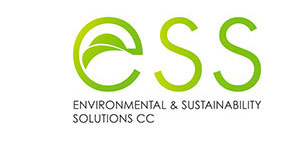Course rationale
Resource Efficient and Cleaner Production (RECP) can be defined as a systematic and integrated approach to managing energy, water, environmental and financial resources, eliminating or minimising waste and emissions to the environment, on a sustainable and cost-effective basis.
RECP methodologies look at enhancing the means to meet human needs while respecting the ecological carrying capacity of the earth by producing more wellbeing with less material consumption.
RECP is measured by the reduction of the resource use and the environmental impact from materials, emissions, and accidental releases per unit of production, trade, and consumption of goods and services over their full life cycles.
RECP addresses the four sustainability dimensions individually and synergistically:
- Production efficiency: optimization of the productive use of natural resources (materials, energy and water);
- Environmental management: minimization of impacts on the environment through reduction of wastes and emissions;
- Human development: minimization of risks to people and communities and support for their development; and
- Cost savings: cost efficiency through the reduction of the costs of waste, emissions, and environmental and health impacts and gaining financial benefits from these reductions.
Course Objectives
The course equips delegates with the knowledge, understanding and tools that will enable them to initiate the development and implementation of RECP.
Specific objectives include:
- Develop an understanding of the concepts of resource efficiency and cleaner production, waste reduction and pollution prevention;
- Discuss sound management practices to implement these concepts;
- Study practices and techniques in RECP in relation to processes, products and waste; and
- Develop the ability to assess the processes and products in order to adapt and minimize waste.
Who should attend?
- Environmental managers
- Sustainability managers
- Production managers and planners
- Energy managers
- Resource planners
- Engineers
Approach to the course
The training consists of a number of highly interactive sessions, including class and group discussions, individual tasks, examples and case studies. Emphasis will be put on practical application of the training content. Delegates will be provided with relevant training material and supporting documentation and information.
The course content was developed by the National Cleaner Production Centre (NCPC-SA).
Participants may claim two (2) CPD credits in Category 1 for successfully completing the course.
Outline of the course
Day 1:
- What is Resource Efficient and Cleaner Production
- Regulatory context
- RECP Assessment Methodology
- RECP Strategy and Interventions
- Exercises and Case Studies
Day 2:
- RECP Assessment Methodology: Detailed In Plant Assessment
- RECP Feasibility Analysis
- RECP Implementation
- RECP Software Tools
- RECP Metrics
- Exercises and Case Studies
Facilitators
The course will be facilitated by Dr Maryna Möhr and Mr Seakle Godschalk. Both are highly experienced facilitators and internationally recognised experts on the subject matter. The facilitators have been involved with the development of international guidance documents on the subject matter and represent the South African Bureau of Standards on ISO work groups for the development of international standards. Both are also facilitators on RECP for the NCPC-SA.
Certificate
Successful participants will receive a certificate of competence issued by the NCPC-SA.
Contact details
Seakle Godschalk at
seakle@ess-sustainability.co.za or +27 (0) 82 395 7582
Maryna Möhr at
maryna@ess-sustainability.co.za or +27 (0) 82 882 7700

